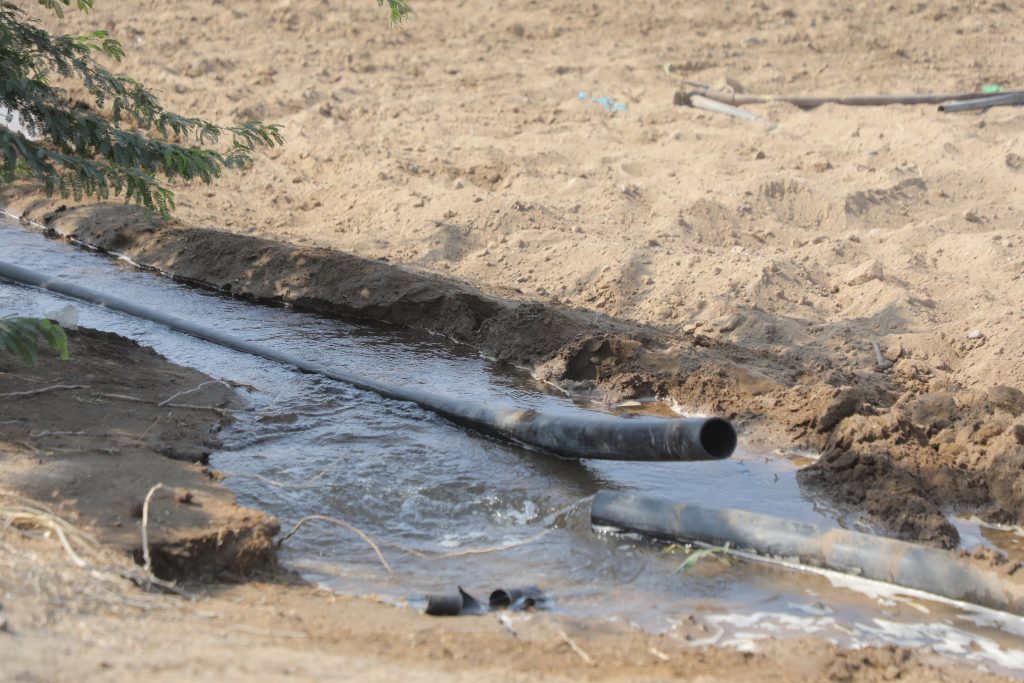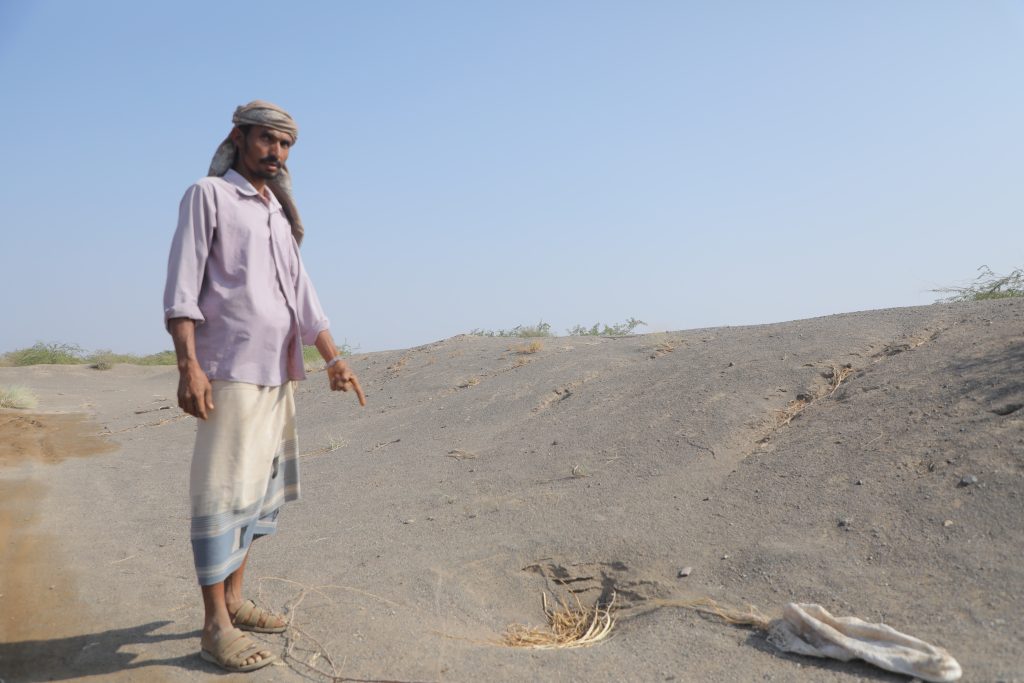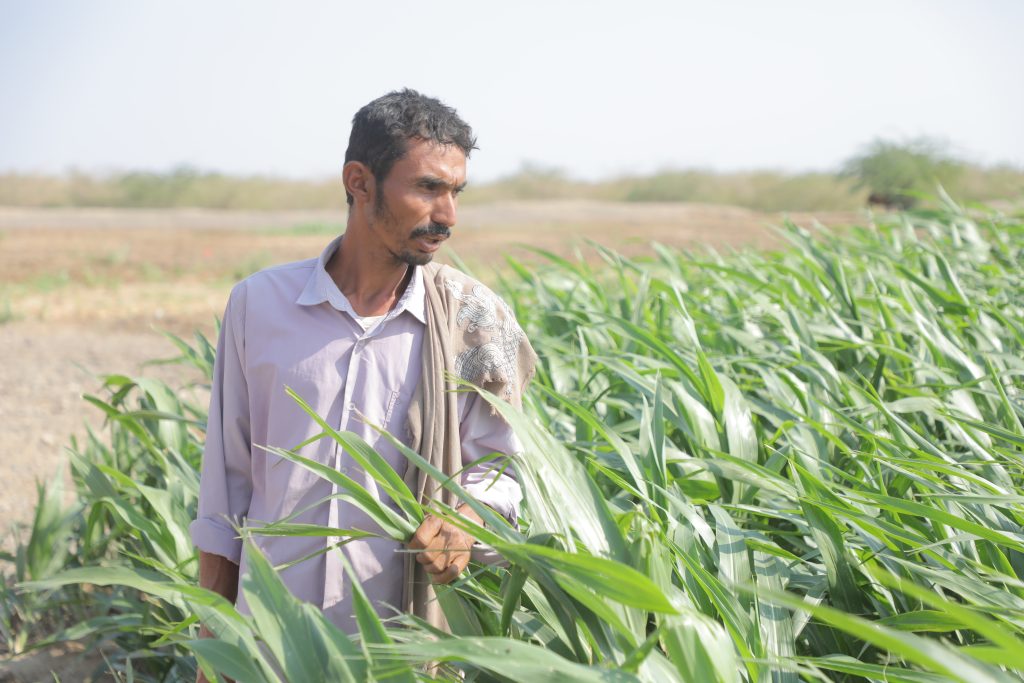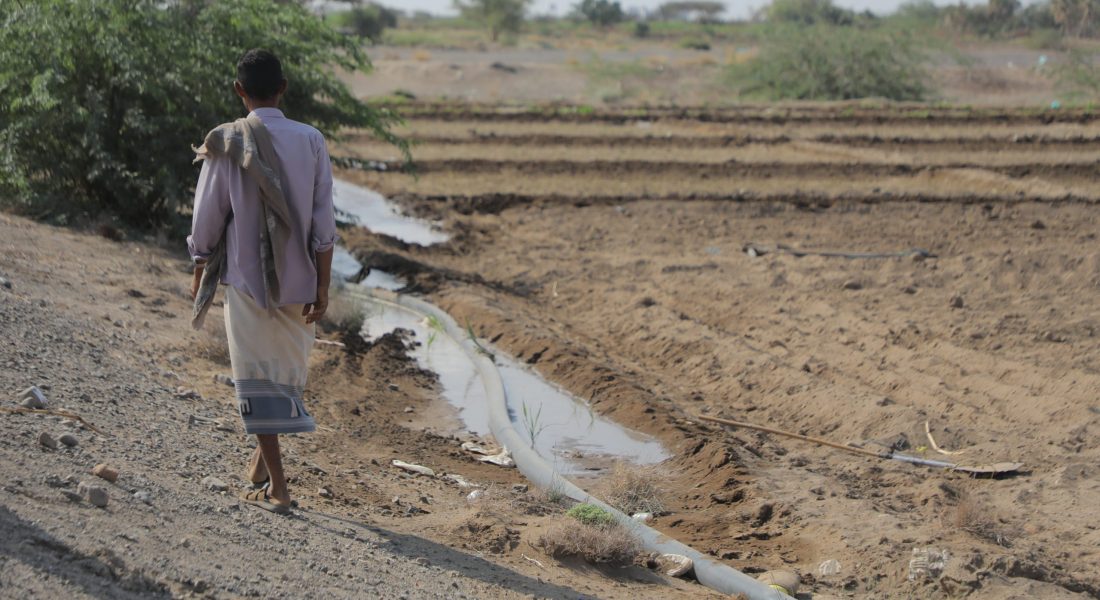After almost a decade of war on the western coast of Yemen, fears about landmines, improvised explosive devices (IEDs) and other explosive remnants of war (ERW) persist, as do the impact of their presence on the lives of civilians in the area.
Since it started operating in the coastal city of Al-Mokha in August 2018, a significant seaport for the Taiz Governorate, Project Masam has been clearing dangerous, and often deadly, explosive items from the area, to clear a path for sustainable development and reconstruction.
In Al-Mokha alone, thousands of densely planted landmines in main and secondary roads, farms, schools, vital facilities, homes, and water sources, have deprived over 10,000 civilians of access to water, and water projects. Civilians depend mainly on water wells to meet their domestic and agricultural needs in Al-Mokha.

An irrigation system in a farm in Al Remah, Al-Mokha, Taiz, Yemen.
Al-Mokha: 10,000 civilians go thirsty
In a statement, Engineer Abdullah Iskandar, Director of the Water and Sanitation Corporation, Al-Mokha branch, confirmed that mines and IEDs have had a negative impact on the lives of more than 10,000 civilians in Al-Mokha, effectively preventing them from accessing fresh water; noting that mines also damaged water transmission pipes and put them out of service due to explosions and shrapnel.
Iskandar also explained that mines have disrupted many development projects to dig wells and establish sewage systems, which were planned by local authorities and international organisations, which have stressed the need to have all areas where water projects are to be established surveyed to make sure that they are clear of landmines.
The engineer added that surveying mined areas takes a long time, as the survey process is not limited only to the area surrounding the well to be drilled, but it also includes the water transmission line which extends for more than 15 kilometres.
The director also pointed out that among the projects that have been disrupted due to landmines is a project to dig four freshwater wells in the Taweelah area of the Al-Mokha district, highlighting how these projects were funded by the King Salman Humanitarian Aid and Relief Center (KSRelief) and implemented by the International Organisation for Migration (IOM).
However, according to Iskandar, the project may continue to be disrupted due to the fear of the implementing authorities of the spread of landmines in the area designated for drilling wells and installing the necessary pipe system. The supporting parties stress the need to coordinate with demining teams to survey and secure the site and ensure that it is clear of landmines, he added.

Farmer Amar Mohammed Abdu Almaka points to where an anti-tank landmine was cleared from his farm, near the water source, in Al Remah, Al-Mokha, Yemen.
Project Masam on the clearance frontline
Given Project Masam’s priorities include the clearance of vital areas, or facilities, Iskandar claimed that the project is a reliable and safe partner for international organisations supporting projects to drill water wells, establish ground reservoirs and establish sewage networks in the directorate.
The leader of Project Masam’s demining Team 17, Hassan Al-Jahouri, said the team managed to remove 12 anti-tank mines planted next to a water well in a farm in the al-Rama area of the Al-Mokha district.
In the previous months, the team cleared and secured civilian Amin Haidar’s farm which is located next to his home, allowing him to use it again to support his family, al-Jahouri said.
He pointed out that Project Masam’s teams managed over the past years to secure more than 20 freshwater wells in the Al-Mokha district, and removed mines planted inside and next to them, allowing local residents to use these wells safely.

Because farmer Amar Mohammed Abdu Almaka was able to access a water source in his farm, he has been able to irrigate and grow new crops this summer.

